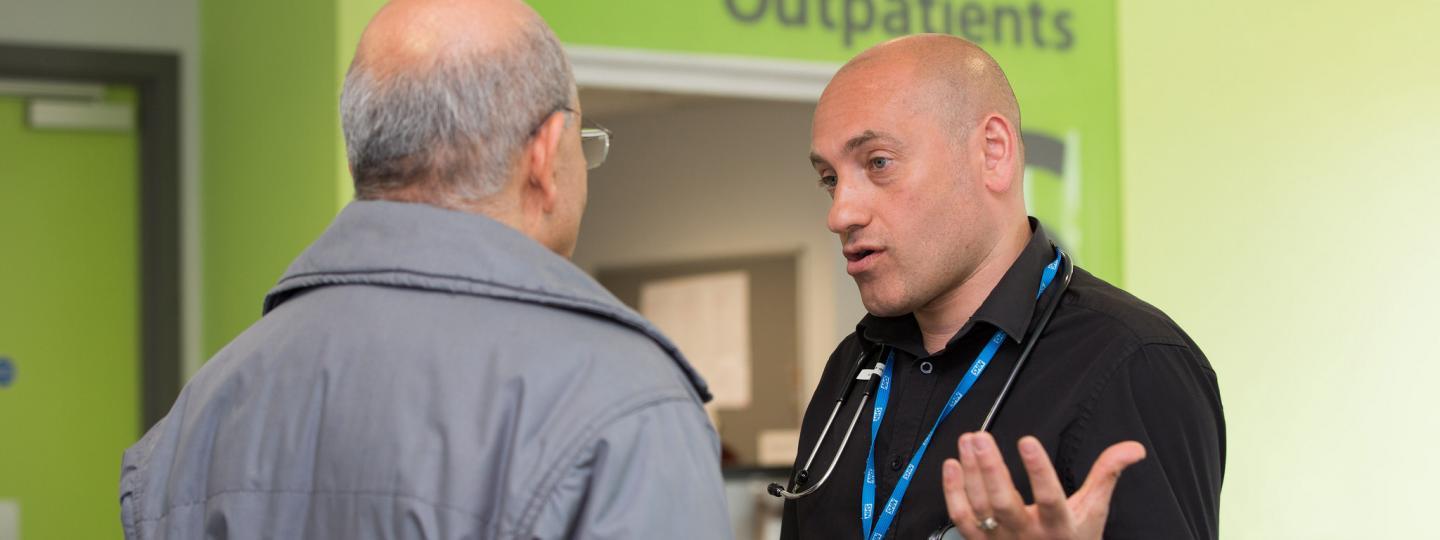Resources to help you make a complaint
Everyone has the right to make a complaint about any aspect of NHS care, treatment, or service. If you or a loved one is unhappy about something, the first step is usually to speak directly to the staff who have been involved in your care. However, if you would rather speak to someone who's not directly involved, the information below may help. Complaints should generally be made within 12 months.
If need any additional information or are not sure who to make your complaint to, please get in touch.

Complaints about primary care services
There are two ways you can make a complaint about primary care services e.g. GPs, dentists, opticians and pharmacies.
- You should complain to the organisation where you received the NHS service, e.g. a GP surgery or dental surgery, first. Details about how you can do this will be available on the organisation's website.
- You can also complain to the ICB as commissioner for these services. You can do this by contacting them using the details on the ICB website.

Mental health services
The Avon and Wiltshire Mental Health Services Patient Advice and Liaison Service (PALS) is a free, confidential and impartial service available to everyone who uses the Trust's mental health services, their families, carers or anyone who needs advice, information, support or guidance with a particular issue.
They can help if you're worried and not sure where to go, need clarity about a situation, want someone to listen to your experience of services, or need information and help.

Hospital services
If you were treated by University Hospitals Bristol and Weston (this includes services such as the eye hospital, dental hospital, BRI and Weston General Hospital), you can find out how to contact contact their PALS and Complaints Team team via their website.
University Hospitals Bristol and Weston
If you were treated by North Bristol Trust (including Southmead Hospital, and services at Cossham and Frenchay), you can find out how to contact their Patient Experience Team via their website.

Sirona Care & Health
Sirona provide a number of services in North Somerset, including community healthcare and the diabetes and Parkinson's services. Details of how to call, email, or write to their Customer Care Service are available on their website.

Commissioners
If you don't want to complain to the relevant NHS service, you can contact the commissioner of the service - but you can't do both.
Contact your local integrated care board (ICB) for complaints about primary care services (GPs, dentists, opticians or pharmacists) and secondary care, such as hospital care, mental health services, out-of-hours services, NHS 111 and community services like district nursing.

Advocacy
In North Somerset, the Advocacy People can help with NHS complaints advocacy, mental health advocacy, care and support advocacy, and advocacy for people who lack capacity.

Adult or child social care services
To make a complaint about adult or child social care, you need to contact your local authority, which is North Somerset Council.
If you want to complain about adult social care services, you need to fill in an online form on the council's website.
If you want to complain about child social care services, you need to fill in an online form on the council's website.

Contacting the ombudsman
Before you contact the ombudsman, you need to have gone through the official complaints process of the service that you are unhappy with. For healthcare complaints, you need to contact the Parliamentary and Health Service Ombudsman.
Parliamentary and Health Service Ombudsman
For social care complaints, you need to contact the Local Government & Social Care Ombudsman.

Care Quality Commission
If you have experienced or seen poor care, you can also tell the Care Quality Commission. This is not a formal complaints procedure, and they aren't able to take forward complaints on your behalf, but sharing your feedback can help improve care.

